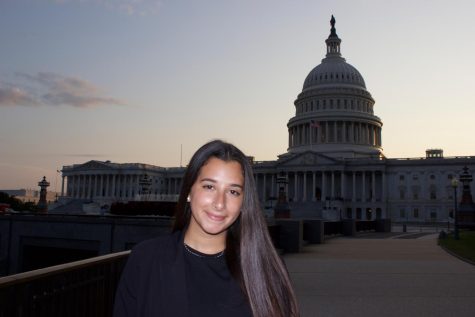Student organizations mobilize marginalized voters ahead of election
Students involved with the Multicultural Center, Black at App State and the Intercultural Student Association hope they can “make a difference” by keeping students informed for the upcoming election.
The Women’s Center, LGBT Center and Multicultural Center are partnering up to host a voter registration week the week of Sept. 28.
“During this time, the centers will hold a space for students to come, register to vote, grab snacks and ask questions,” said Imani Dillon, Multicultural Center graduate assistant. “This way, the centers are doing their part to make sure that students can and will vote.”
Dillon, also co-president of the Black Graduate Student Association, said if students don’t speak out, demand change and vote, the government won’t know what they need.
“It is important for marginalized and diverse students to vote because there is a war going on in our nation,” Dillon said. “We want our voices to be heard in a way that we know will make a difference. Voting is one of the ways we can make our voices heard.
Pew Research shows that although racial and ethnic diversity among United States voters has grown steadily since 1990, Asian, Hispanic and Black voters have a significantly lower turnout than white voters.
In the 2018 elections, 72.8% of voters were white, while 11.9% were Black, 9.6% were Hispanic and 3.5% were Asian, according to Pew.
Watauga County, as of Sept. 12, has a total of 45,509 registered voters. Of those, about 88% are white, according to the North Carolina Board of Elections.
In Watauga County, 94.8% of the population is white, according to the 2019 Census data.
“It is our right and responsibility to be heard through our votes,” said Lamont Sellers, director of Intercultural Student Affairs at App State.
Sellers said he is actively working to encourage students, faculty and staff to make sure they are registered and vote in all federal, state and local elections.
“Essentially, I want the president and leaders across the board to uphold our rights and fight for equality, equity and justice for all, regardless of their backgrounds and identities,” Sellers said.
This semester, ISA is sponsoring the Sankofa Support Group, led by Assistant Director of ISA, Marco Fonseca.
The Sankofa Support Group is a social justice organization that enlists artists, performers and other prominent individuals to “deliver messages of moral and political consequence.”
Sankfoa focuses on issues of injustice that “disproportionately affect the disenfranchised, the oppressed and the underserved.”
“This group provides opportunities leading up to and after the election for students to share thoughts, feelings and reactions to the developments during this election cycle,” Sellers said.
ISA is also providing information that will help students understand the processes and requirements for participating in the election.
“We are also promoting and supporting the university-wide efforts to educate, mobilize, and engage students in the upcoming election through various offices and centers across campus,” Sellers said.
Korbin Cummings, member of the Black at App State Collective, said voting is an important tool for students to utilize in order to seek change.
“Real change happens when folks hold themselves accountable, constantly educate themselves and explore how their own political interests can aid the collective movement for freedom, equity and overall liberation,” said Cummings, director of diversity and inclusion for App State’s Student Government Association.
Cummings said SGA is actively working with Boone Town Council and the Watauga County Board of Elections to ensure that “all people that live in Watauga County are adequately represented and feel safe to explore the electoral process.”
Early voting will take place at six sites across Watauga County from Oct. 15 to Oct. 31.
We hope you appreciate this article! Before you move on, our student staff wanted to ask if you would consider supporting The Appalachian's award-winning journalism. We are celebrating our 90th anniversary of The Appalachian in October 2024!
We receive funding from the university, which helps us to compensate our students for the work they do for The Appalachian. However, the bulk of our operational expenses — from printing and website hosting to training and entering our work into competitions — is dependent upon advertising revenue and donations. We cannot exist without the financial and educational support of our fellow departments on campus, our local and regional businesses, and donations of money and time from alumni, parents, subscribers and friends.
Our journalism is produced to serve the public interest, both on campus and within the community. From anywhere in the world, readers can access our paywall-free journalism, through our website, through our email newsletter, and through our social media channels. Our supporters help to keep us editorially independent, user-friendly, and accessible to everyone.
If you can, please consider supporting us with a financial gift from $10. We appreciate your consideration and support of student journalism at Appalachian State University. If you prefer to make a tax-deductible donation, or if you would prefer to make a recurring monthly gift, please give to The Appalachian Student News Fund through the university here: https://www.givecampus.com/campaigns/54088/donations/new?designation_id=faa93386&

Abi Pepin (she/her) is a senior journalism major, political science minor, from Concord, NC.
